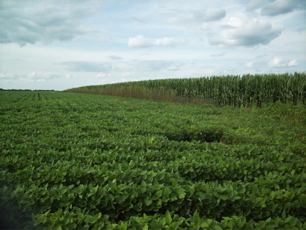Part of a series of stories for liberal religious kids. This story is from the Taoist tradition: adapted from section 1 of Chuang Tzu, from translations by Lin Yu tang, and by Burton Watson. The closing paragraph is derived from a line that may have been lost from the text (see note 5 in Watson).
The Quail and the Bird Called P’eng
Copyright (c) 2006 Dan Harper
Many years ago in ancient China, the Emperor T’ang was speaking with a wise man named Ch’i.
Ch’i was telling the Emperor about the wonders of far off and distant places. Ch’i said:
“If you go far, far to the north, beyond the middle kingdom of China, beyond the lands where our laughing black-haired people live, you will come to the lands where the snow lies on the ground for nine months a year, and where the people speak a barbaric language and eat strange foods.
“And if you travel even farther to the north, you will come to a land where the snow and ice never melts, not even in the summer. In that land, night never comes in the summer time, but in the winter, the sun never appears and the night lasts fro months at a time.
“And if you go still farther to the north, beyond the barren land of ice and snow, you will come to a vast, dark sea. This sea is called the Lake of Heaven. Many marvelous things live in the Lake of Heaven. They say there is a fish called K’un. The fish K’un is thousands of miles wide, and who knows how many miles long.”
“A fish that is thousands of miles long?” said the Emperor. “How amazing!”
“It is even more amazing than it seems at first,” said Ch’i. “For this giant fish can change shape and become a bird called P’eng. This bird is enormous. When it spreads its wings, it is as if clouds cover the sky. Its back is like a huge mountain. When it flaps its wings, typhoons spread out across the vast face of the Lake of Heaven for thousands of miles. The wind from P’eng’s wings lasts for six months. P’eng rises up off the surface of the water, sweeping up into the blue sky. The giant bird wonders, ‘Is blue the real color of the sky, or is the sky blue because it goes on forever?’ And when P’eng looks down, all it sees is blue sky below, with the wind piled beneath him.”
A little gray dove and a little insect, a cicada, sat on the tree and listened to Ch’i tell the Emperor about the bird P’eng. They looked at each other and laughed quietly. The cicada said quietly to the dove, “If we’re lucky, sometimes we can fly up to the top of that tall tree over there. But lots of times, we don’t even make it that high up.”
“Yes,” said the little dove. “If we can’t even make it to the top of the tree, how on earth can that bird P’eng fly that high up in the sky? No one can fly that high.”
Ch’i continued to describe the giant bird P’eng to the Emperor. “Flapping its wings, the bird wheels in flight,” said Ch’i, “and it turns south, flying across the thousands of miles of the vastness of the Lake of Heaven, across the oceans of the Middle Kingdom, heading many thousands of miles towards the great Darkness of the South.”
A quail sat quietly in a bush beside the Emperor and Ch’i. “The bird P’eng can fly all those thousands of miles from the Lake of Heaven in the north across the Middle Kingdom, and into the vast ocean in the south?” said the quail to himself. “Well, I burst up out of the bushes into flight, fly a dozen yards, and settle back down into the bushes again. That’s the best kind of flying. Who cares if some big bird flies ninety thousand miles?”
The Emperor listened to Ch’i, and said, “Do up and down ever have an end? Do the four directions ever come to an end?”
“Up and down never come to an end,” said Ch’i. “The four directions never come to an end.
“That is the difference between a small understanding and a great understanding,” continued Ch’i. “If you have a small understanding, you might think the top of that tree is as high up as you can go. If you have a small understanding, you might think that flying to that bush over there is as far as you can go in that direction. But even beyond the point where up and down and the four directions are without end, there is no end.”
But the quail did not hear, for she had flown a dozen yards away in the bushes. The cicada did not hear because it was trying to fly to the top of a tree. And the little dove did not hear because he, too, was flying to the top of the nearby elm tree.


